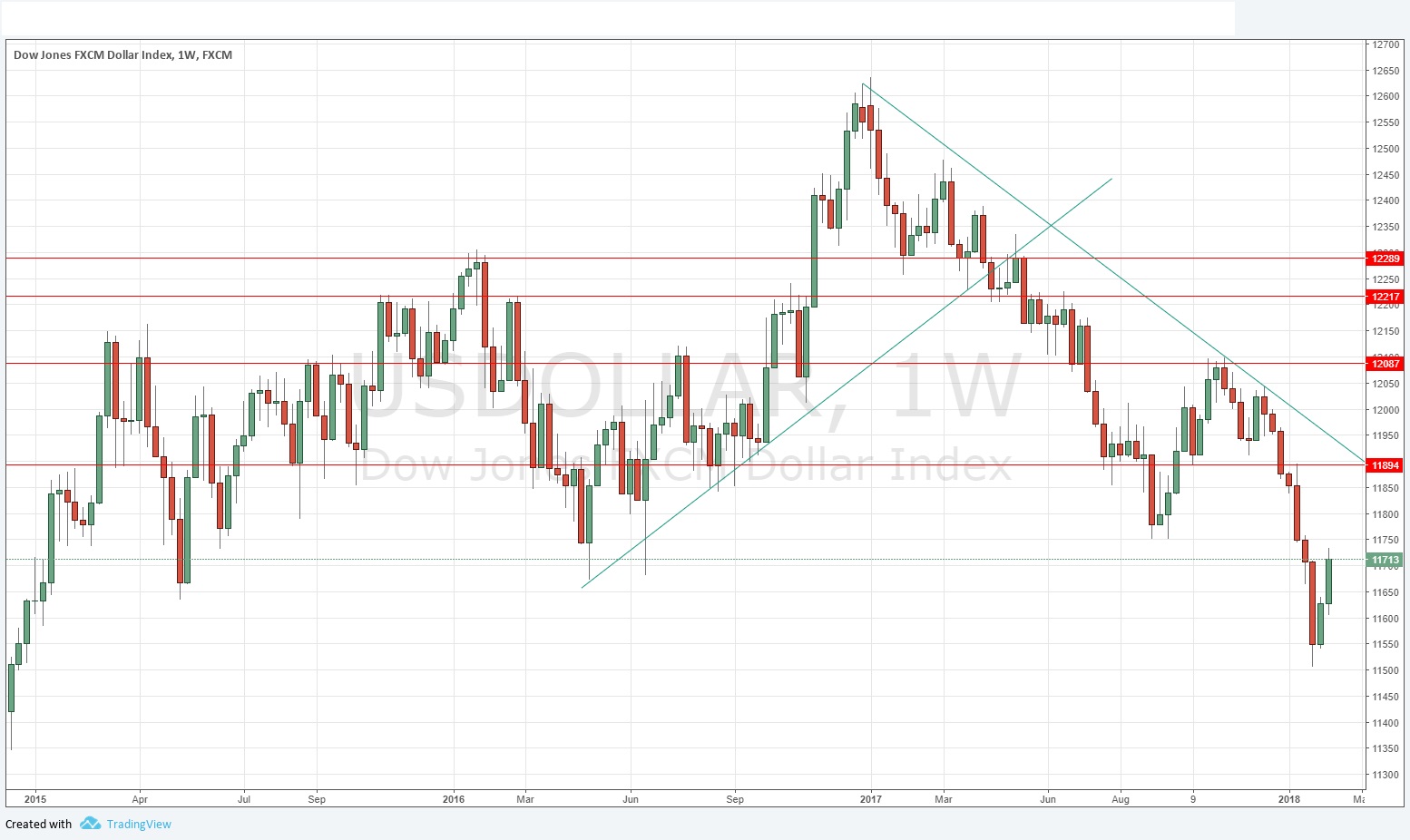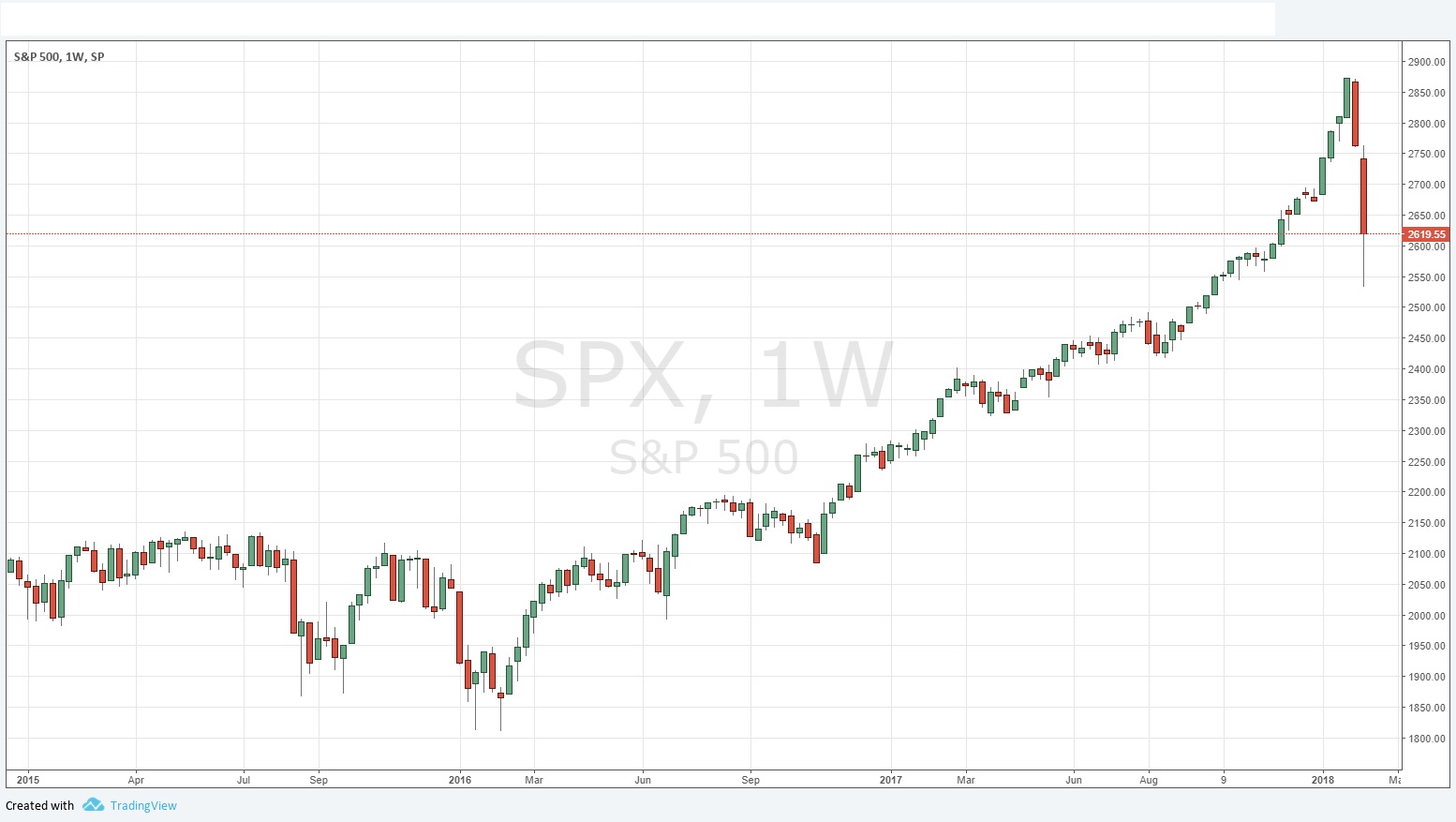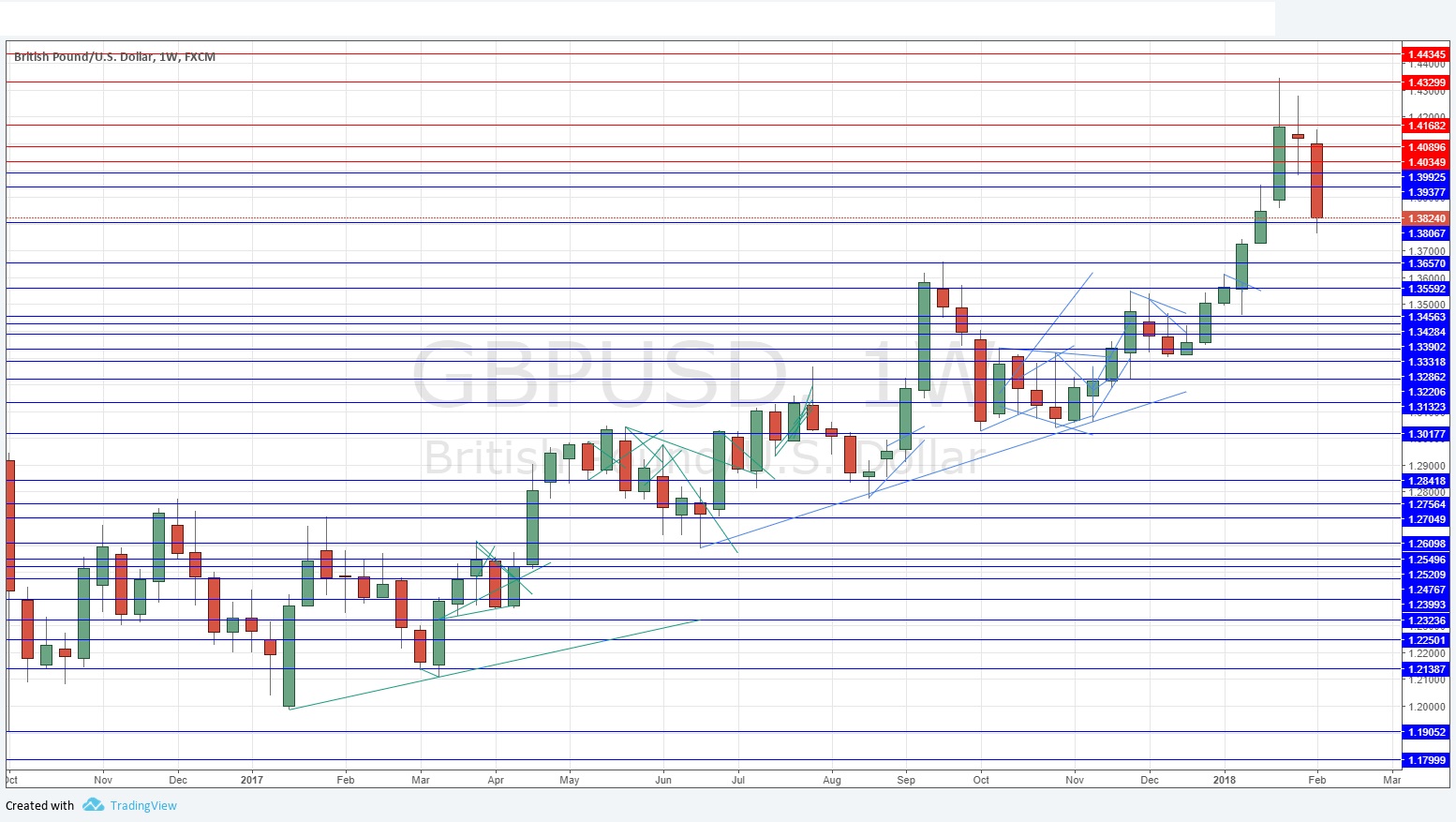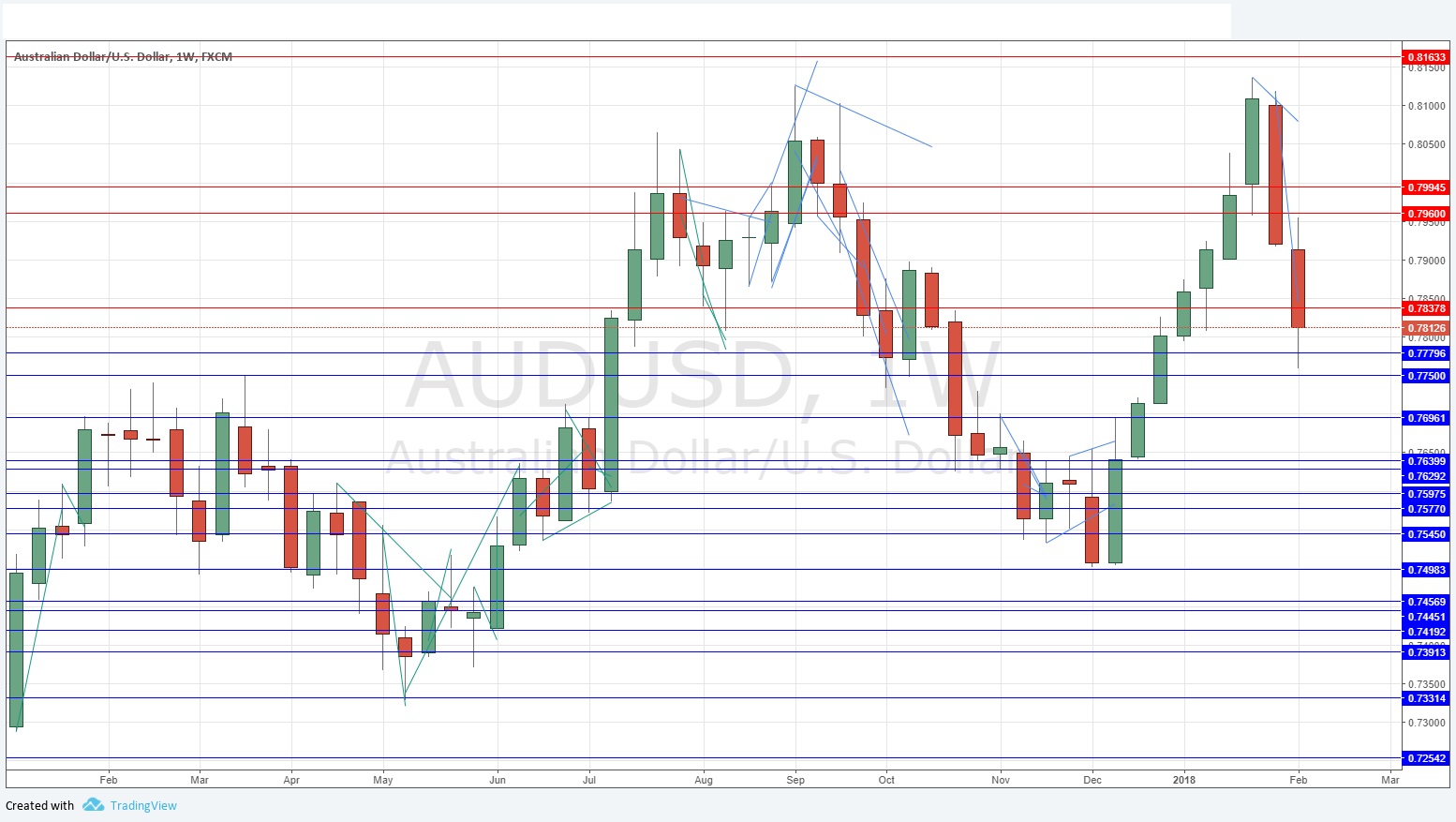The difference between success and failure in Forex trading is very likely to depend upon which currency pairs you choose to trade each week, and not on the exact trading methods you might use to determine trade entries and exits. Each week I am going to analyze fundamentals, sentiment and technical positions in order to determine which currency pairs are most likely to produce the easiest and most profitable trading opportunities over the next week. In some cases it will be trading the trend. In other cases it will be trading support and resistance levels during more ranging markets.
Big Picture 11th February 2018
In my previous piece last week, I saw the best possible trades for the coming week as long of the Forex currency pairs EUR/USD and, to a lesser extent, GBP/USD. The individual results were not good, with EUR/USD falling in value by 1.65%, and GBP/USD falling in value by 2.09%, producing an average loss of 1.87%.
The most important development in the market is the continuing sharp fall in the U.S. stock market from an all-time high price only two weeks ago. Although many analysts are pinning the fall on rising long-term U.S. bond prompting profit taking, which came into focus two weeks ago with strong earnings data suggesting a steepening pace of rate hikes, the market had already been falling strongly before that, with stronger downwards momentum over time than the preceding price rise over recent weeks. Weekly falls as strong as last week’s are not very common, happening only 58 times since 1950. They often coincide with the start of a major bear market, although the price tends to recover at first. This suggests that it is worth keeping a close eye on the stock market over the next few weeks as we may be seeing the beginning of the end of the long-term, multi-year bull market. The price of the S&P 500 Index is currently down 8.79% from its high, although it reached correction territory exceeding -10% during early trading last Friday, when it hit a 4-month low. I consider a weekly close at a new 6-month low to be indicative of a bear market in U.S. stocks.
The sharp falls in stock markets have had a pronounced impact on the Forex market, dwarfing the effect of anything from central banks or major economic data releases. What we see now is a strong flow into safe-haven assets such as the U.S. Dollar, Japanese Yen, and Swiss Franc, and a strong flow out of risky assets, especially the commodity currencies. This is counter-trend, as the U.S. Dollar is below its prices of three and six months ago, which puts it in a long-term downwards trend. However, sentiment is so strongly in favor of safe-haven assets now that it probably makes sense to be positioned counter trend.
The news agenda this week will probably be dominated by the performance of the stock market. In terms of data releases, there is no central bank input from any major countries scheduled, and the agenda will probably be dominated by U.S. inflation and retail sales numbers.
Fundamental Analysis & Market Sentiment
Sentiment on fundamentals is turning more bullish on the U.S. Dollar and bearish on stocks. Sentiment is supporting safe-haven currencies such as the Japanese Yen and Swiss Franc.
Technical Analysis
U.S. Dollar Index
This index printed a strong bullish candlestick, which closed in its upper quarter with only a small upper wick. The price made a new 3-year low recently, which is a bearish sign. There is a strong, long-term bearish trend, and a bearish trend line dominates the price chart shown below. However, the rise over the past couple of weeks has been strong, suggesting that this counter-trend movement in favor of the Dollar has a good chance of continuing further.
S&P 500 Index
This pair is in a long-term upwards trend, yet it fell very strongly again last week, with very high volatility which is likely to be a bearish sign. Most of the time, such strong falls are followed by another fall over the next week, yet the overall edge remains unclear. There is a meaningful chance, perhaps about 30%, that we are seeing the first signs of a new bear market in U.S. stocks. A strong daily close above 2700 or perhaps 2750 would suggest the bull market is resuming in earnest.
GBP/USD
This pair is in a long-term upwards trend, yet it has clearly failed to rise higher over the past couple of weeks, printing a bearish doji and then a large, strongly bearish candle which closed near its low. Despite the trend, the strong flow into the U.S. Dollar and negative sentiment on the British Pound suggests that this pair is likely to fall further over the coming week.
AUD/USD
This pair is effectively trendless over any long-term metric but is making wide swings. Current market sentiment is strongly in favor of the U.S. Dollar while punishing commodity currencies such as the Australian Dollar. Last week saw the Australian Dollar as the weakest of all the major currencies. Last week produced a strong, large bearish candlestick. While there is a significant lower wick there, it looks likely to fall again over the coming week.
Conclusion
Bearish on the GBP/USD and AUD/USD currency pairs.




